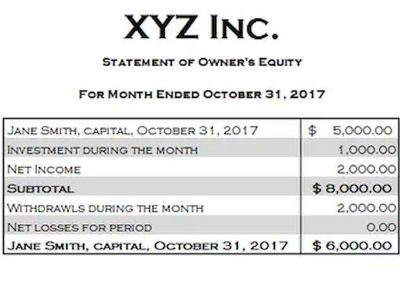
Payables Retainage is used to specify a liability account that is dedicated to retainage payables. Any account that has an Account Type sales revenue account type of Payables Retainage may be used on the Purchases and Vendor Credit Memo Withhold Retainage tab. Recording revenue appropriately also affects regulatory and legal matters.
What is the importance of revenue accounts?
For example, proceeds from the sale of an asset, a windfall from investments, or money awarded through litigation are non-operating revenue. Cash accounting, on the other hand, will only count sales as revenue when payment is received. Cash paid to a company is known as a “receipt.” It is possible to have receipts without revenue. For example, if the customer paid in advance for a service not yet rendered or undelivered goods, this activity leads to a receipt but not revenue.
- This means being proactive in seeking out industry news, subscribing to accounting newsletters, and joining relevant forums and discussion groups.
- This systematic approach allows stakeholders to gain meaningful insights into economic activities and make informed decisions.
- Accounting organizes all financial transactions into five primary account categories.
- This means that as revenue increases it is credited and as it decreases it is debited.
- Navigating the labyrinth of revenue recognition standards can sometimes feel like walking through a legal maze.
- This can help businesses make informed financial decisions and keep on top of their expenses.
Importance of Accurate Revenue Recognition
Revenue accounts are critical to any business, and ensuring you are tracking your transactions accurately will give you real-time information on how your business is growing. Moreover, anything that brings in money for any reason is tracked under Revenue accounts. Your company’s expenses are anything you purchase to run your business. When you buy fuel for your company vehicle or stock up on office supplies, those purchases are considered company expenses and you need accounts involved in that.
Contra Revenue Accounts
If you’ve been a business owner for any length of time, you’ve probably seen a wide variety of retained earnings balance sheet different accounts or sub-accounts, which can vary wildly. What’s more, they are often customized to fit the business owner’s specific needs. This represents deposits in banks available for current operations, plus cash on hand consisting of currency, undeposited checks, drafts, and money orders. Understand the accounting classification of Sales Returns and Allowances and their impact on a company’s reported revenue.
Understanding Revenue Accounts
The sales discount account is a contra revenue account, which means that it reduces total revenues. The following journal entry contains the sample recordation of a $100 sales discount. Revenue is the inflow of cash as a result of primary activities such as provision of services or sale of goods.


Non-operating revenue is the money earned through secondary operations of the business. This form of revenue is the one generated other than the core operations of an organization. As per the revenue recognition principle, revenue is only recorded by the company when the delivery of services is completed. While the sale is made on paper, the company has not fully received the benefits of rendering those services in the form of cash.
- Think of it as peeling back the Instagram filters to see the real, unedited picture of your sales performance.
- When it comes to bookkeeping, sales returns and allowances aren’t just digits on a ledger—they’re stories of hiccups, mishaps, and how you (hopefully) turned things around.
- Meanwhile the opposing entry which is cash is debited with the same amount.
- Each rise and dip tells a story about where your business is sprinting ahead or where it might be losing steam.
- Cost of sales (also known as cost of goods sold) for inventory items is computed based on inventory costing method (FIFO, LIFO, or Average Cost).
Interest Income

Now that you know how accounts and sub-accounts work, you can make the necessary adjustments to your company’s bookkeeping. In doing so, you can effectively record and monitor to reduce unnecessary spending, increase revenue, and meet financial goals. Your company’s Equity accounts will increase when there is an investment or funding into your business and decrease when there is a loss or an owner’s draw occurs. What’s more, it’s the difference between the separate accounts of your assets and liabilities. Moreover, every sub-account you use allows you to keep track of your spending more accurately. When combined with accounting software like FreshBooks, managing your business is easier than ever.


Interest income – Interest income is the most common form of non-operating income because most businesses earn small amounts of interest from their savings and checking accounts. It can also include interest earned from accounts receivable or other contracts. If a company has the main object of its business as renting activities, this rental income account would be called an Operating Income Account/ Sales account. But if renting is not the primary activity of the business, then it would fall under the Non-Operating Revenue Accounts.
- Cash paid to a company is known as a “receipt.” It is possible to have receipts without revenue.
- For example, you invested money into a business and earn interest on it.
- These costs typically include direct materials, direct labor, and manufacturing overhead, but exclude indirect costs like administrative or selling expenses.
- Revenues may also be earned from activities that do not relate directly to operations.
- Sales Returns and Allowances directly impacts a company’s income statement in the calculation of net sales.
The accounts in which https://sukkurvi.com/nonprofit-accountants-nonprofit-accounting/ revenue transactions can be recorded depend upon the nature of the underlying transactions. This means that a credit in the revenue T-account increases the account balance. As shown in the expanded accounting equation, revenues increase equity. Unlike other accounts, revenue accounts are rarely debited because revenues or income are usually only generated.


